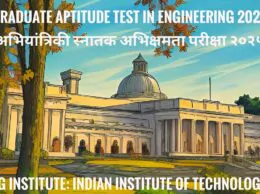New Delhi: The aspirants for enrolling PhD programs are increasing considering lucrative career opportunities emerge post doctoral degree. Nearly 1 Lakh 70 Thousand students have enrolled in doctoral programmes in 2018-19 as per AISHE 2018-29 report of Ministry of HRD.
Getting PhD Admission in an university or a college is not an easy task. Universities or Colleges follow guidelines as per the UGC for Doctoral Degree Admission. The PhD Admission process is based on University Grants Commission (Minimum Standards and Procedure for Award of MPhil/PhD Degrees) Regulations, 2016 and subsequent amendments popularly known as UGC MPhil and PhD Regulations. Here SkillOutlook presents key points of Eligibility and PhD Admission Test or Entrance Test as per the UGC PhD Regulations.
Eligibility for Admission to PhD programmes: Candidates shall have a Master’s degree or a professional degree declared equivalent to the Master’s degree with at least 55% marks in aggregate or its equivalent grade ‘B’ in the UGC 7-point scale (or an equivalent grade in a point scale wherever grading system is followed).
A relaxation of 5% of marks, from 55% to 50%, or an equivalent relaxation of grade, is allowed for those belonging to SC/ST/OBC(non-creamy layer)/Differently-Abled and other categories of candidates as per the decision of the Commission from time to time.
Candidates possessing an MPhil Degree shall be eligible for admission to PhD programme.
PhD Admission Test: The universities including deemed to be universities conduct PhD Admission Test or Entrance Test as per the Regulations. The syllabus of the Entrance Test shall consist of 50% of research methodology and 50% shall be subject specific.
To qualify the Entrance test, candidates belonging to General Category candidates should score at least 50% marks meanwhile and candidates belonging to SC/ST/OBC (non-creamy layer)/PWD category should score atleast 45% marks. Those qualify the PhD Entrance Test will appear the Interview/Viva-voce.
The interview/viva voce shall be based on broadly three parameters: the candidate possesses the competence for the proposed research; the research work can be suitably undertaken at the Institution/College; and the proposed area of research can contribute to new/additional knowledge.
How Merit List is prepared: Merit lists are prepared for each category i.e. candidates belonging to SC, ST, OBC, PWD categories separately and on the basis of performance of candidates in the total aggregate marks (CBT + Viva-voce). The aggregate marks are based on a weightage of 70 % in Entrance Test and 30% to the performance in the interview/ viva-voce.
Exemption from Entrance Test: The UGC Regulation say the University/Institution Deemed to be a University may decide separate terms and conditions for PhD Entrance Test for those students who qualify UGC-NET (including JRF)/UGC-CSIR NET (including JRF)/SLET/GATE/teacher fellowship holder or have passed MPhil programme.
Most of the universities exempt UGC-NET (including JRF)/UGC-CSIR NET (including JRF)/SLET/GATE/teacher fellowship holder or MPhil degree holders from appearing PhD Entrance Test. These candidates having JRF will have to appear the Interview for PhD Admission.
This brief on Eligibility conditions and PhD Admission Test as per the UGC PhD Regulations will definitely guide aspirants how to prepare the PhD Test and crack a seat in doctoral programmes offered Universities or Higher Educational Institutes.








